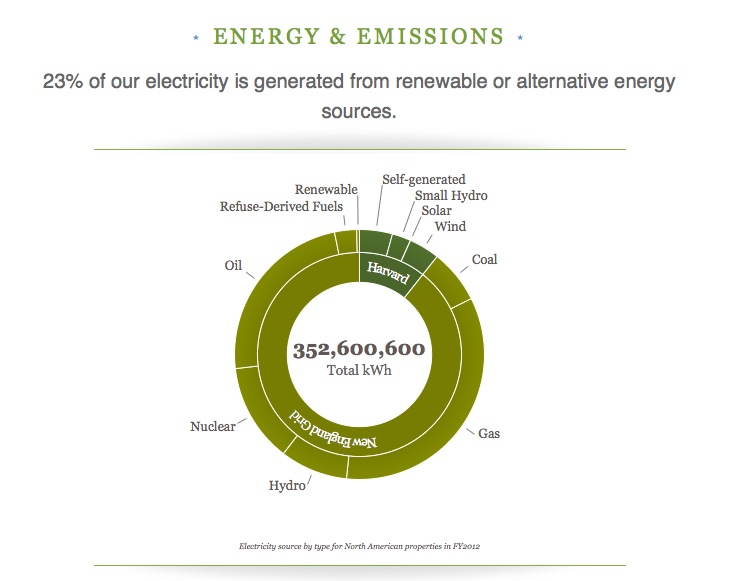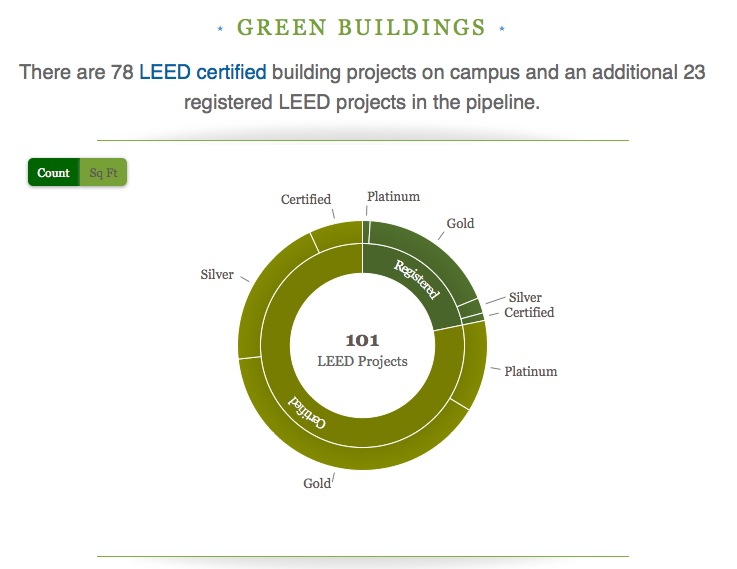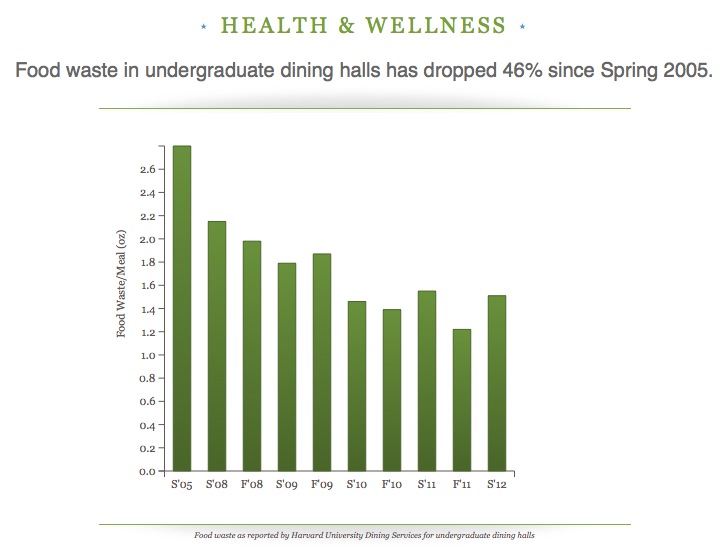HARVARD OFFICE FOR SUSTAINABILITY
Methodology
The Harvard Office for Sustainability embarked upon the process of developing a university-wide impact report in partnership with Harvard’s twelve Schools and administrative departments in order to:
- Provide a baseline for future reporting and benchmarking by collecting and displaying sustainability performance data across our University.
- Display the breadth and depth of our community’s commitment to sustainability in order to educate and hopefully inspire others inside and outside Harvard.
- Encourage an open and honest conversation about the challenges we face in implementing Harvard’s sustainability goals so we can identify the solutions that will help us move forward.
Our approach to sustainability is constantly evolving and so should our reporting. We purposely created an interactive online reporting format not only to use less paper and conserve natural resources but more importantly so we could continually update data and allow students, staff, faculty, alumni and others to interact with the data and content in real-time.
As a University we have a role and a special responsibility to confront the challenge of climate change with the seriousness of purpose it deserves. In 2008, Harvard set a goal to reduce greenhouse gas emissions 30% by 2016 from a 2006 baseline, including growth. Utilizing a collaborative, community-driven greenhouse gas reduction strategy to reduce building energy use and improve the efficiency of our energy supply, the Harvard community has rallied to achieve university-wide reductions in energy and emissions.
Our buildings are where we live, work, learn and conduct life-saving, groundbreaking research. They are also where we consume an enormous amount of energy – heating and cooling alone accounts for 40% of our greenhouse gas emissions. At Harvard, we’re constructing and renovating our buildings to be as efficient and healthy as possible. The results are offices, classrooms, dorms and laboratories that have a lower impact on the surrounding environment and operate more efficiently to better support our teaching and research mission.
What keeps us healthy? Many factors, including our behavior and our genes, determine whether we live in good health or not. Equally as important to our health are forces outside ourselves – the air we breathe, food we eat, water we drink, and places we live – in short, our environment. Many of the major public health challenges facing our world today are linked to our environment. These include infectious disease, respiratory disease, waterborne and foodborne illness, and exposure to environmental toxins. Protecting our environment protects our health (courtesy of the Center for Health and the Global Environment).
View full report (Harvard.edu): Sustainability at Harvard: Impact Report
About the Harvard Office for Sustainability
green.harvard.edu
“The Harvard Office for Sustainability (OFS) works as a catalyst for a change by partnering with faculty, students and staff at all Schools and administrative units to foster a culture of sustainability and use the campus as a living laboratory for innovation. OFS oversees the implementation of Harvard’s sustainability goals and convenes the community to share best practices and develop new programs and policies that strive to serve as replicable models to inspire our students and future leaders, and seek to influence the higher education, government and business sectors.”
Tags: Center for Health and the Global Environment, Harvard Office for Sustainability, Harvard University, OFS









 RSS Feed
RSS Feed